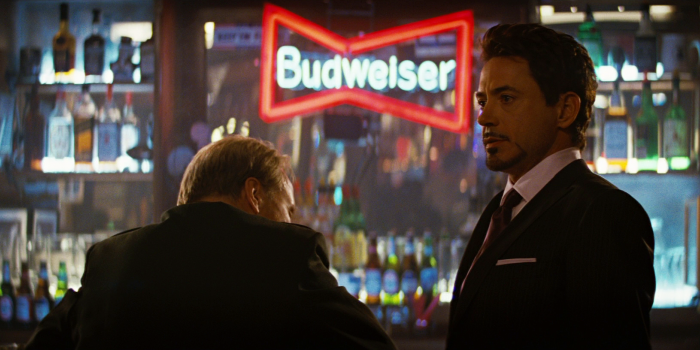
Cast: Lior Ashkenazi, Rotem Keinan, Tzahi Grad
Director: Aharon Keshales, Navot Papushado
Country: Israel
Genre: Comedy | Crime | Thriller
Official Site: Here
Editor’s Notes: Big Bad Wolves opens in Canada on January 10th. Opens Friday January 17th in Toronto at Cineplex, Yonge & Dundas, in Ottawa at Mayfair Theatre, and in Victoria at The Vic Theatre.
There’s a dead little girl, a victim of a horrible crime whose killer is still on the loose. There’s a suspect who everyone has decided must be guilty. There’s a desperate cop who will stop at nothing to catch the killer. And there’s the little girl’s father, out for revenge and just a taste of solace. If this sounds a bit familiar, that’s because it’s the sort of story you’ve seen played out a million different times with slight variations pasted over it until it hopefully looks like something new.
Big Bad Wolves doesn’t look like anything new; in fact, what it transposes over its basic narrative is also lifted from a variety of sources, barely repurposed and certainly not reimagined with any sense of storytelling, character depth, or style. This is the same old story, told again at a slightly higher volume, as if by the pedantic relative you’re pretending to tune out at a family gathering, if that relative really liked torture.
Big Bad Wolves doesn’t look like anything new; in fact, what it transposes over its basic narrative is also lifted from a variety of sources, barely repurposed and certainly not reimagined with any sense of storytelling, character depth, or style.
When a young girl turns up dead and missing her head, Miki (Lior Ashkenazi), the cop taken off the case as a result of his failings and a video gone viral of him beating up chief suspect Dror (Rotem Keinan), decides to go rogue and torture Dror until he confesses. He is only stopped when Gidi (Tzahi Grad), the father of the latest victim, turns up, kidnaps both, and decides to torture Dror anew. If you’re looking for a morality tale about how far people will go in desperate situations, an ethical query on the nature of guilt and innocence, or a film with character arcs and plot twists that can’t be spotted from the lobby before the show, I’d suggest looking elsewhere.

It would be surprising to me that Quentin Tarantino named Big Bad Wolves his best film of 2013 (in an off-hand remark after a screening at the Busan film festival, to clarify. The film was not on his officially released Top Ten list, which came out in October and possibly before he had seen this) if the bulk of the film didn’t play like an extended homage to the ear-cutting scene from Reservoir Dogs. Yet where that scene is filled to the brim with Tarantino’s inimitable style, packed with ethical import, and vital from both a plot and character perspective, the extended torment that forms the crux of Big Bad Wolves plays more like bland torture porn delivered by a character who is completely unsympathetic even given that the only thing we know about him for much of the film is that his daughter died.
The film fails on virtually every level. It takes too long to set things up, and once it has done that, it seems unsure how to proceed except to follow the basic template of “torture-interruption-torture-interruption” to run out the clock.
The film fails on virtually every level. It takes too long to set things up, and once it has done that, it seems unsure how to proceed except to follow the basic template of “torture-interruption-torture-interruption” to run out the clock. None of the characters become developed enough that we care about them. Dror constantly and manically claims he is innocent, but because he barely registers as more than an oppressed victim in an over-played story (and because his persuasive strategy is to tell people who clearly aren’t listening that he didn’t do it repeatedly), it becomes hard to care. And while Miki and Gidi theoretically have different perspectives on the alleged-killer and possibly would diverge on how far they are willing to go, this never really comes up as more than a device to drive the plot. Most of the film takes place in a dimly lit basement with just the three men present, and yet after 110 minutes, I could tell you almost nothing about any of them except what each does during that runtime.
It is fairly easy to build tension in confined quarters, even more so when those quarters are filled with desperate men in a bad situation. So how is it that Big Bad Wolves never develops any suspense? The film has many of the elements of a thriller, but it seems to know little more than what those tools are and not nearly enough to use them properly. The script, written by co-directors Aharon Keshales and Navot Papushado, seems to have been developed as far as the basic situation of the story and then no further, and the direction is flat and affectless, whether what’s being shot is a chase sequence, a man being tortured, or Gidi baking a cake. The gorgeous and haunting opening credits sequence aside, Big Bad Wolves lacks any lasting impact; it’s a film with a weighty topic and potential for heady philosophical and moral questions that feels feather-light and begins to disappear from your mind the minute it ends. This is an obvious film that never goes deeper than the surface of a story that is already a retread. It squanders potential whenever it seems to be developing toward something interesting, always taking a sharp turn back toward the depressingly conventional. Stop me if you’ve heard this one before.
[notification type=”star”]46/100 ~ BAD. It is fairly easy to build tension in confined quarters, even more so when those quarters are filled with desperate men in a bad situation. So how is it that Big Bad Wolves never develops any suspense? The film has many of the elements of a thriller, but it seems to know little more than what those tools are and not nearly enough to use them properly. [/notification]



